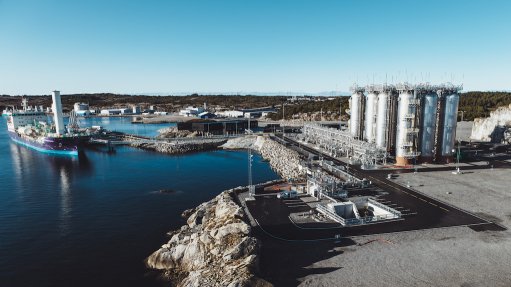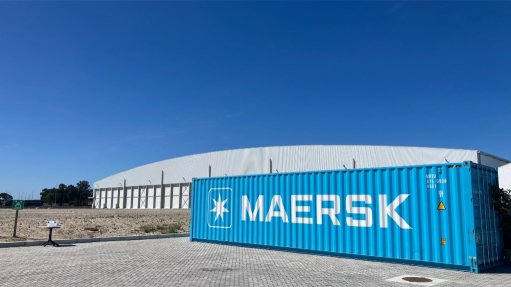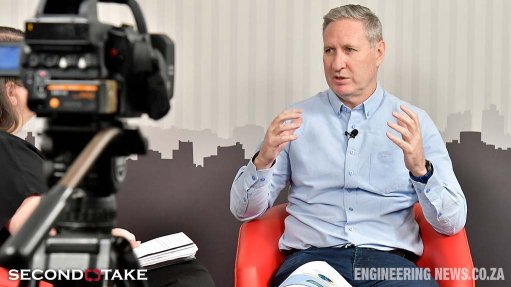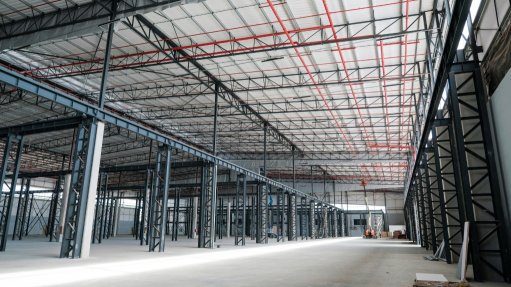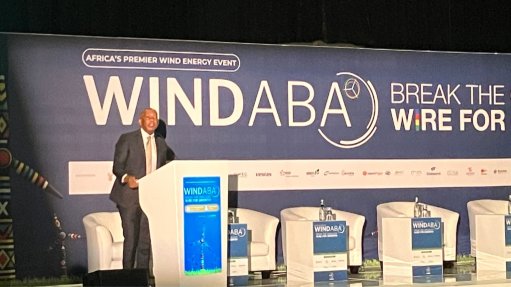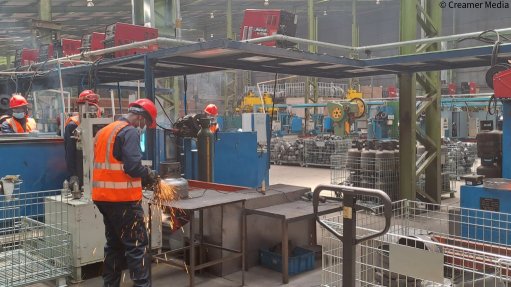Why it’s time to treat tourism like economic infrastructure
This article has been supplied and will be available for a limited time only on this website.
By: Marc Wachsberger - CEO of The Capital Hotels, Apartments & Resorts, with contributions from inDrive and Batsumi
From Venice to New York, global cities are struggling under the weight of their own popularity. Overtourism has become a pressing issue. Overcrowded attractions, inflated prices and strained infrastructure are prompting both travellers and policymakers abroad to rethink how tourism works. Yet, as some destinations look for ways to slow visitor numbers, others have an opportunity to step up.
For South Africa, that opportunity has arrived.
With the G20 Summit taking place on our shores this year, the country finds itself under a global spotlight. Beyond the politics, this moment invites a deeper conversation about how South Africa can use tourism not just to welcome the world, but to drive long-term, inclusive economic growth.
Tourism as economic infrastructure
Tourism already accounts for billions in national GDP and South Africa’s industry is in good health. Last year we saw more than 8 million arrivals, a growth of 5.1%. With that said, its true potential remains untapped. It’s one of the few sectors that can simultaneously create jobs, support small businesses and showcase local culture to the world. If South Africa’s policymakers treat it as an essential part of the country’s economic infrastructure, on par with energy or transport, tourism could become one of our most reliable growth levers.
“Hotels and bespoke conferencing venues have become the heartbeat of economic ecosystems. They support jobs, suppliers and investor confidence. More importantly they’re a billboard showing the world what South Africa could be.” says Marc Wachsberger, CEO of The Capital Hotels, Apartments & Resorts. “Our growth over the past decade and change has shown that when you pair local agility with global standards, you create a product that drives confidence across the value chain.”
The Capital Hotel Group’s own journey offers a practical model for how hospitality investment can fuel broader economic activity. By challenging traditional hotel norms, through flexible stays, smart luxury, and expansion into new regions, the group has shown how innovation and resilience can thrive even in uncertain markets.
But success in the hospitality sector depends on more than great hotels. It relies on a connected ecosystem that makes travel seamless from arrival to departure.
Movement as the starting point
Mobility is the first and most fundamental part of any traveller’s experience, especially in a country without walkable cities. Whether a visitor is exploring the city or commuting between business meetings, their perception of a destination begins the moment they step into a vehicle. Affordable, accessible and safe transport solutions are therefore critical to the success of the broader tourism economy.
Ashif Black, Country Representative at inDrive, explains: "In South Africa, a lack of reliable and safe transport options outside major city centres often limits where tourists can go, which in turn restricts economic opportunities for smaller towns and local businesses. Affordable, accessible mobility directly affects the reach and impact of tourism. Bridging these gaps is essential if the sector is to support inclusive growth and allow visitors to experience the full diversity of the country.”
inDrive, a global ride-hailing platform operating in over 982 cities across 48 countries, has been expanding its presence in South Africa since 2019. The platform operates on a peer-to-peer pricing model, allowing passengers and drivers to negotiate fares directly, fostering affordability and transparency. This approach not only benefits tourists but also supports local drivers and small businesses, contributing to the broader economy.
As the world’s mobility patterns shift, technology is closing gaps between travellers and transport providers. For South Africa, this means ensuring that innovation in ride-hailing, airport transfers and intercity movement keeps pace with rising tourist demand while also supporting local drivers and small businesses.
A strong tourism policy must recognise that movement is the thread that connects every experience. Therefore, it needs the kind of seamless, convenience that can compete with cities with a metro.
Of course, no amount of infrastructure or transport matters if the destination experience falls flat. Today’s travellers are not chasing the same bucket-list attractions that once defined tourism marketing. They want authenticity, connection and stories that feel rooted in the places they visit.
Lisa Sebogodi, Managing Director of Batsumi Travel, explains: “Many tourists miss out on South Africa’s regional gems because itineraries are poorly coordinated and transport between destinations is unreliable. When travel routes connect local businesses, cultural sites and community experiences, visitors stay longer and spend more, and tourism becomes a real driver of inclusive growth.”
This shift is an extraordinary opportunity for South Africa. With its cultural depth, diversity and natural beauty, the country is perfectly positioned to become the next global tourism trend, a destination that offers both meaningful experience and sustainable growth. As global travellers turn away from over-crowded markets, South Africa can position itself as a destination where tourism works for people, not against them.
A collaborative vision for growth
The lesson from overtourism abroad is clear: success can only be sustained when tourism is treated as a shared ecosystem, not a collection of separate industries. Accommodation, mobility, and experience are all interdependent and when they work together, they create value far beyond the immediate visitor spend. The G20 is the perfect opportunity to showcase that.
That’s why tourism deserves to be at the top of South Africa’s policy agenda. It’s not just about attracting visitors; it’s about building an ecosystem that supports entrepreneurs, workers, and communities long after the guests have gone home.
As the G20 Summit approaches, the world will be watching South Africa’s ability to lead on issues of inclusive growth and sustainable development. Tourism has a unique role to play in that story one that is grounded in innovation, collaboration, and national pride.
The world is ready for new destinations and new narratives. If South Africa can pair its natural appeal with forward-thinking policy and strong private-sector partnerships, tourism won’t just be another economic talking point, it will be our next great success story.
Article Enquiry
Email Article
Save Article
To advertise email advertising@creamermedia.co.za or click here
Comments
Press Office
Announcements
What's On
Subscribe to improve your user experience...
Option 1 (equivalent of R125 a month):
Receive a weekly copy of Creamer Media's Engineering News & Mining Weekly magazine
(print copy for those in South Africa and e-magazine for those outside of South Africa)
Receive daily email newsletters
Access to full search results
Access archive of magazine back copies
Access to Projects in Progress
Access to ONE Research Report of your choice in PDF format
Option 2 (equivalent of R375 a month):
All benefits from Option 1
PLUS
Access to Creamer Media's Research Channel Africa for ALL Research Reports, in PDF format, on various industrial and mining sectors
including Electricity; Water; Energy Transition; Hydrogen; Roads, Rail and Ports; Coal; Gold; Platinum; Battery Metals; etc.
Already a subscriber?
Forgotten your password?
Receive weekly copy of Creamer Media's Engineering News & Mining Weekly magazine (print copy for those in South Africa and e-magazine for those outside of South Africa)
➕
Recieve daily email newsletters
➕
Access to full search results
➕
Access archive of magazine back copies
➕
Access to Projects in Progress
➕
Access to ONE Research Report of your choice in PDF format
RESEARCH CHANNEL AFRICA
R4500 (equivalent of R375 a month)
SUBSCRIBEAll benefits from Option 1
➕
Access to Creamer Media's Research Channel Africa for ALL Research Reports on various industrial and mining sectors, in PDF format, including on:
Electricity
➕
Water
➕
Energy Transition
➕
Hydrogen
➕
Roads, Rail and Ports
➕
Coal
➕
Gold
➕
Platinum
➕
Battery Metals
➕
etc.
Receive all benefits from Option 1 or Option 2 delivered to numerous people at your company
➕
Multiple User names and Passwords for simultaneous log-ins
➕
Intranet integration access to all in your organisation










